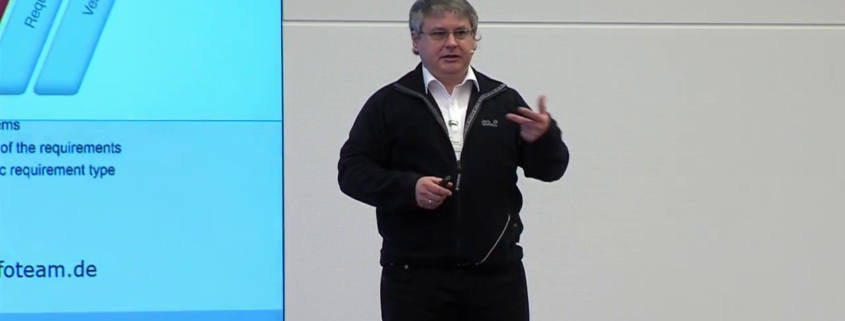Tag Archive for: Automotive
Western Digital UFS 3.1 enables storage for new apps in mobile, automotive and IoT industries
/in Mobile Security
Western Digital announced its new embedded flash platform for Universal Flash Storage (UFS) 3.1 to enable new applications in mobile, automotive, IoT, AR/VR, drones and other emerging segments that are reshaping the way we live, work and play.
In an increasingly mobile world of always on, always connected and always available, Western Digital’s unique UFS 3.1 platform, based on the JEDEC-compliant UFS 3.1 specification, provides the speed, reliability and feature versatility that customers count on to build small, thin and lightweight solutions.
Leveraging its vertical integration capability to optimize NAND, firmware, controller design, software and drivers, Western Digital can efficiently design purpose-built solutions for a variety of markets including mobile, IoT, automotive, and more – all leveraging a common UFS 3.1 architecture. Setting a new benchmark, this new platform is expected to deliver up to 90% improvement in sequential write performance, compared to its previous generation.
This improvement will help realize 5G and Wi-Fi 6 download speed potential, delivering a better experience when consuming rich media files such as 8K video, as well as improved performance for applications such as burst mode photography.
“We are just scratching the surface today on what services, technologies and devices will be built around mobility, but one thing is clear, flash storage is central to their success,” said Huibert Verhoeven, senior vice president of Automotive, Mobile and Emerging, Flash Business, Western Digital. “With our new UFS 3.1 platform, we are opening up new opportunities that never could have existed before, and we are thrilled to continue our collaboration with our customers to help them design, differentiate and add value to their solutions.”
Western Digital has developed products based on this platform, starting with its new family for mobile and consumer applications, and is working with its hardware ecosystem partners to enable it on their upcoming solutions. The company expects to deliver products to market in 2H2021.
HackersEra are taking over challenges of automotive security with their revolutionary approach
/in Computer Security
HackersEra is India’s first-ever vehicle pentest company that understands the need for security of vehicles and has been successful in providing comprehensive solutions and planning out strategies to protect the various assets of an organization, shares Vikash Chaudhary, the CEO of HackersEra. Being the experts in Penetration Testing, HackersEra has now taken over the challenges of Automotive Security.
The Age of Automobile Hacking: A Closer Look to Automotive Security!
Automotive security discusses the branch of computer security that is fixated on the cyber threats associated with the automotive background. The gradually increasing number of ECUs in automobiles and, along with that, the application of several diverse means of communication from and to the vehicle in remote and wireless means led to the requirement of a branch of cybersecurity devoted to the coercions related to the vehicles.
Vehicles are nowadays also linked with devices with Bluetooth, incorporated cellular communication and Wi-Fi for a far-flung start, locate my car, and various other applications. Automobile to set-up, automobile to automobile, automobile to cloud, and automobile to everything technology also make cars exposed to hackers.
It is a moderately new notion for the Indian markets. Nevertheless, it is not going to go anywhere, Automakers are getting themselves ready for automotive security. The notice of Tesla entering the Indian market has the people thrilled and also curious regarding automotive security in a lot of ways. Although there are not a lot of professionals in this field, there is one Indian firm that has come out to be an innovator in Automotive Security, which is HackersEra.
Vehicle Pentesting: The Need for Tomorrow!
In a world that constantly moves around the internet, there is probably not a single thing that you cannot do with the snap of a finger via the internet. In such times, the necessity to empower vehicle-to-internet communication and other remote availability has suggestively enlarged the outbreak surface of an up-to-date car.
While vehicle pentesting is still something that the automakers are trying to attain to accomplish Automotive Security, pentesting…
Automotive cyber security must be efficient, scalable and foolproof, says Kaspersky
/in Internet Security
Vehicle exteriors have undergone sizeable changes over the last ten years, but the real transformation has taken place under the hood. One change is the sheer number of electronic control units (ECUs) modern vehicles contain. Today’s high-end vehicle can require as many as 100 ECUs to function as intended. Complex computing operations such as advanced driver assistance systems (ADAS) and autonomous driving will only add to the required computing power. Though these ECUs can enable connected services or automated driving, every additional link in the chain opens up potential cyber security flaws.
“The autonomous, connected, electric and shared (ACES) trends bring new requirements which modern automotive operating systems need to be capable of handling,” Ilya Efimov, Head of Technology Solutions Development, KasperskyOS told Automotive World. As he detailed, ADAS functionality requires significant computing power. While this power can be integrated, Kaspersky is concerned over the potential vulnerabilities which could be unlocked within safety-critical components. “As more cars are connected to the internet, it is clear that modern internet threats that we see on desktop computers or mobile devices will come to automotive too. Connected cars open a new attack vector,” he added.
Adaptive security
Kaspersky is no stranger to cyber security, and to tackle this new field it has developed the Kaspersky Automotive Adaptive Platform. The company says it offers a software development kit (SDK) with a ‘security-first’ design specifically for automotive, based on the company’s own operating system, KasperskyOS. “We see that this platform will be a solution for automotive vendors to reduce their cost. As the cyber security trend grows in automotive, our operating system is a great fit to combat a rising problem,” said Efimov. “Right now we have a version that automotive developers can use to develop their own applications, and we’re working on launching it commercially next year.”

How does…


